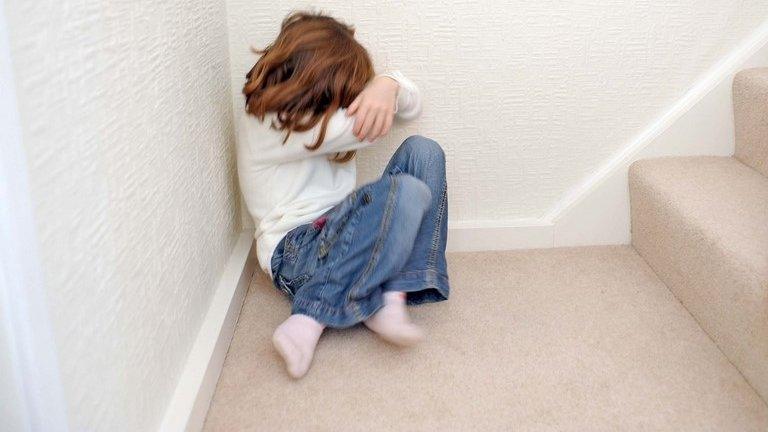Minister under pressure to stop abusers interviewing victims in court
- Published

Justice Secretary Liz Truss is being urged to bring family courts in line with criminal courts over the cross-examination of vulnerable people
Justice Secretary Liz Truss is facing growing pressure to stop domestic abusers from cross-examining former partners in family courts.
The courts handle parental disputes and other cases related to divorce.
The head of England and Wales' family courts, Sir James Munby, said family courts were lagging "woefully" behind criminal ones, where a ban is in place.
The Ministry of Justice said it was working with the judiciary to bring in extra protection for the vulnerable.
In family courts, judges are supposed to follow guidance, known as practice direction 12J, when handling cases in which domestic violence is cited as an issue.
This is aimed at stopping an abusive partner from directly interrogating their ex, requiring the judge to step in instead.
However, research by Women's Aid found one in four abuse victims with experience of the family court had been questioned by their violent or abusive former partner.
Campaigners and members of the judiciary want Ms Truss to close this loophole, which effectively allows abusers to re-traumatise their victims.
'Coercive control'
Polly Neate, chief executive of Women's Aid, said that professionals in family courts, usually judges, often had an "appalling" lack of understanding of domestic abuse cases.
"They don't understand that domestic abuse very commonly, in fact routinely, continues after separation," she told BBC Radio Four's Woman's Hour.
"If the last violent incident was a few months ago and the couple have separated, they just don't see that as a potentially abusive situation.
"They don't understand the impact of domestic abuse on children, they don't understand coercive control."
She said people in family courts were representing themselves more and more, often because they were not eligible for legal aid since cuts were made in 2012.
'Slow response'
Currently in 80% of family court cases at least one of the participants has no lawyer, and is representing themselves, BBC home affairs correspondent Daniel Sandford said.

Sir James says reform should be a "matter of priority" for the Ministry of Justice
In a statement,, external Sir James, president of the Family Division, said he had been pressing for reform of the way in which vulnerable people give evidence in family proceedings since 2014, and had been disappointed by ministers' "slow response".
He said reform should be "a matter of priority", saying a bar would be welcome.
"But the judiciary cannot provide this, because it requires primary legislation and would involve public expenditure. It is therefore a matter for ministers," he said.
A Ministry of Justice spokesman said family judges already have a range of powers to protect vulnerable witnesses in court.
These included intervening to prevent inappropriate questioning and ordering video links, protective screens and intermediaries, he said.
"However, we recognise more needs to be done, which is why we are working with the judiciary to consider additional protections," he added.
It is understood that the Ministry of Justice has undertaken research looking at how judges currently manage cross-examination in cases, and the findings will inform new measures to protect the vulnerable.
- Published20 September 2016

- Published22 April 2014

- Published2 September 2014
